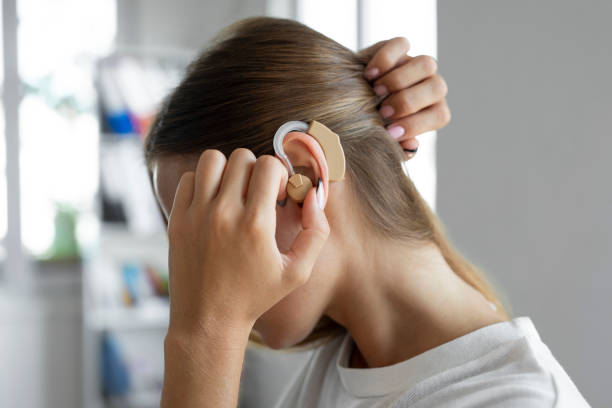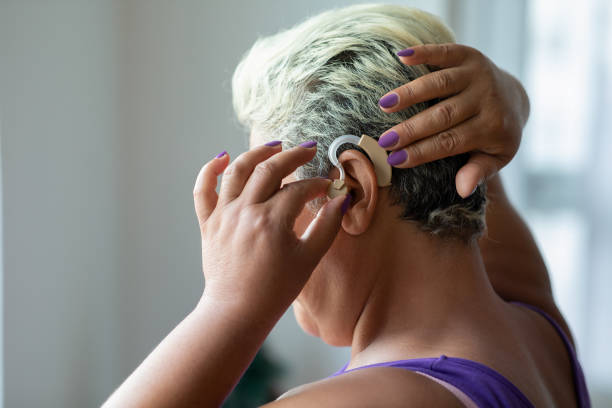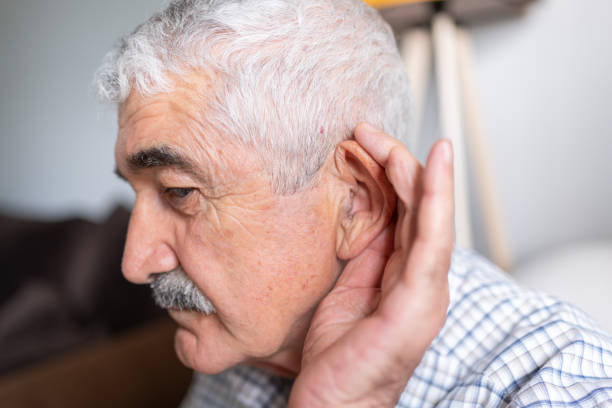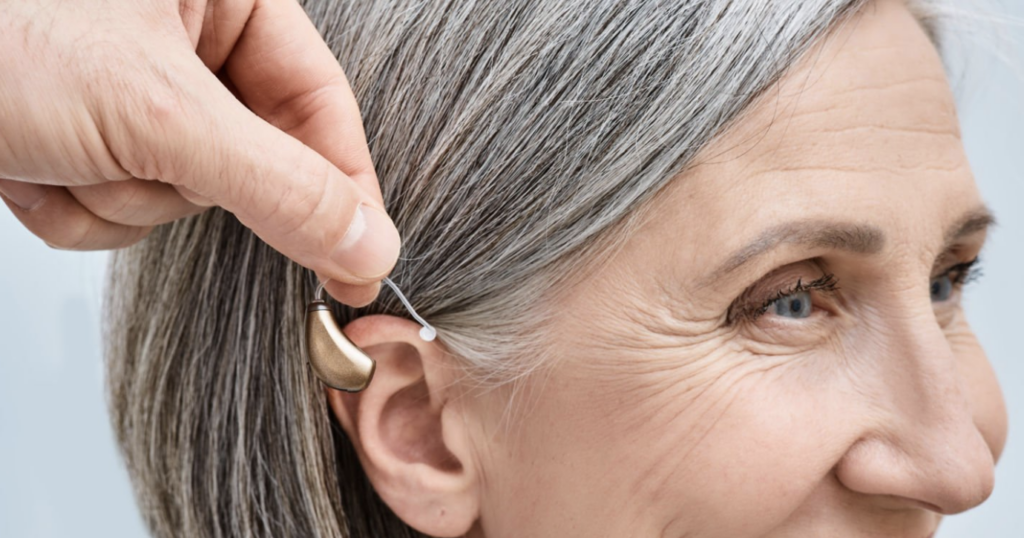Research
Do Hearing Aids Really Work for Everyone?
Are hearing aids one-size-fits-all and do they actually work for everyone? These are frequent questions that people have while considering hearing aids. In this article, we’ll look at the efficacy of hearing aids and if they can actually help everyone with hearing loss.
How do Hearing Aids Work?
Individuals with hearing loss use hearing aids, which are electrical devices that amplify sound and improve hearing. They work by recording sound with a microphone and then converting it into electrical impulses. These signals are first processed and amplified before being transmitted to the ear via a speaker or receiver.
Amplification of sound enables people with hearing loss to hear noises that were previously difficult or impossible to hear. Hearing aids can be customized to meet the unique needs of each person, taking into account the frequency and strength of sounds that require amplification.
While hearing aids work effectively for many people, their efficacy varies depending on a number of factors.

Factors that Affect the Effectiveness of Hearing Aids
- Severity and Type of Hearing Loss: The severity and type of hearing loss have a considerable impact on the effectiveness of hearing aids. Individuals with mild to moderate hearing loss often perform better with hearing aids than those with severe or profound hearing loss. Furthermore, the kind of hearing loss, such as sensorineural or conductive, can influence the efficacy of hearing aids.
- Individual Health Condition: An individual’s overall health can have an impact on the effectiveness of hearing aids. Certain medical issues, such as ear infections or blockages, may necessitate extra treatment before hearing aids can deliver the full benefit. Address any underlying health concerns that may be causing hearing loss.
- Ability to Adapt to New Sounds: The ability to adjust to new sounds is required when switching to hearing aids. Some people may find the procedure difficult, requiring time and patience to fully benefit from wearing hearing aids. Working together with a hearing healthcare specialist can help people get through this adjustment phase.
- Personal Expectations and Lifestyle Preferences: Personal expectations and lifestyle preferences might have an impact on overall satisfaction with hearing aids. It is critical to set reasonable expectations and recognize that hearing aids may not completely restore hearing to normal levels. Furthermore, taking into account lifestyle aspects, such as the requirement for hearing aids in various listening contexts, can assist in picking the best hearing aid features.
In recent years, advancements in technology have made hearing aids more sophisticated and customizable, allowing for better sound quality and comfort. However, it’s essential to consult with a hearing healthcare professional to determine the most suitable hearing aids for it to really work for you.
Types of Hearing Aids
Hearing aids come in various types, each with its own advantages and considerations. The most common types include:
- Behind-the-Ear (BTE) Hearing Aids: These hearing aids rest comfortably behind the ear and are connected to an earmold or a thin tube that delivers sound into the ear canal. BTE hearing aids are suitable for individuals with mild to profound hearing loss.
- In-the-Ear (ITE) Hearing Aids: ITE hearing aids are custom-made to fit the shape of the individual’s ear. They sit in the outer portion of the ear and are suitable for individuals with mild to severe hearing loss.
- In-the-Canal (ITC) and Completely-in-the-Canal (CIC) Hearing Aids: These hearing aids are smaller and fit partially or completely into the ear canal, making them less visible. They are suitable for individuals with mild to moderate hearing loss.
- Receiver-in-Canal (RIC) and Receiver-in-the-Ear (RITE) Hearing Aids: RIC/RITE hearing aids have a small receiver or speaker placed inside the ear canal, connected to the main device behind the ear. They are suitable for individuals with mild to moderate hearing loss.
Choosing the right hearing aids for one’s needs requires careful consideration of the individual’s hearing loss, lifestyle preferences, and budget. A hearing healthcare professional can provide guidance and recommend the most suitable options.

Common Misconceptions about Hearing Aids
Despite their effectiveness, hearing aids are sometimes surrounded by misconceptions. Let’s debunk some common myths:
- Hearing aids make everything sound too loud: Modern hearing aids feature superior technology that enables for sound personalization and tuning. Hearing aids, with proper fitting and programming, can provide a comfortable listening experience without significantly distorting or enhancing sounds.
- Hearing aids are exclusively for the elderly: While age-related hearing loss is widespread, hearing aids can help people of any age. Hearing loss can be caused by a variety of factors, including heredity, loud noise exposure, and specific medical problems. Seeking early intervention and using hearing aids as needed can significantly enhance quality of life.
- Hearing aids are large and noticeable: Hearing aids have evolved greatly over time. Today, they come in sleek and inconspicuous styles that make them less noticeable when worn. Many hearing aids can be modified to match the wearer’s skin tone or hair color, making them even more covert.
Tips for Maximizing the Benefits of Hearing Aids
To make the most of hearing aids, consider the following tips:
- Wear them consistently: Consistency is essential when it comes to wearing hearing aids. Wearing them throughout the day lets the brain to adjust to new sounds and prevents you from missing out on critical auditory information.
- Keep them clean and maintained: Proper maintenance is essential for peak performance. Clean your hearing aids on a regular basis and adhere to the manufacturer’s maintenance requirements. Schedule regular check-ups with your hearing healthcare provider to ensure that your hearing aids work properly for you.
- Communicate your needs: Be upfront and honest with your loved ones and colleagues. Tell them how they can support you in talks, such as speaking properly and facing you directly. Educating individuals around you about your hearing loss can lead to greater understanding and support.
- Seek professional advice: Working closely with a hearing healthcare specialist is essential for optimizing the benefits of hearing aids. They can fine-tune the settings, offer continuous assistance, and resolve any problems or difficulties that occur.

Alternative Solutions for Hearing Loss
In addition to hearing aids, there are other alternative solutions available for individuals with hearing loss. These include:
- Assistive Listening Devices: Assistive listening devices, such as personal amplifiers and FM systems, can be used in conjunction with or as an alternative to hearing aids. These devices enhance sound in specific listening situations, such as watching TV or participating in group conversations.
- Cochlear Implants: Cochlear implants are surgically implanted devices that bypass damaged parts of the inner ear and directly stimulate the auditory nerve. They are suitable for individuals with severe to profound hearing loss who do not benefit from hearing aids.
- Communication Techniques: Learning and practicing communication techniques, such as lip-reading and sign language, can supplement hearing aids or be used as alternative methods of communication for individuals with profound hearing loss.
It’s important to consult with a hearing healthcare professional to explore and determine the most suitable solution for individual hearing needs.
Conclusion
In conclusion, while hearing aids can greatly improve the quality of life for many people with hearing loss, how they effectively work may vary from person to person. Factors such as the severity and type of my hearing loss, my individual health condition, ability to adapt to new sounds, and my personal expectations all contribute to the overall success of hearing aids.
Trusted Health, Wellness, and Medical advice for your well-being


